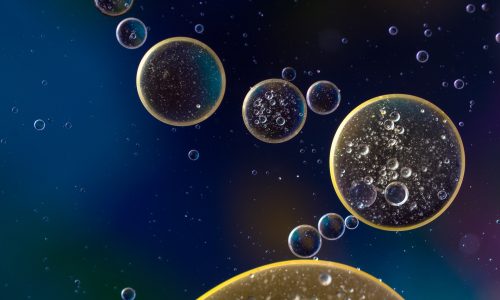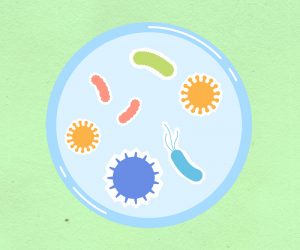These 7 Behaviors Are Aging Your Bones
Dr. Don Colbert – It’s time to recognize and change these 7 behaviors, since they’re aging your bones. Make the changes necessary today to keep your bones, and body, youthful and healthy.
Each day, you may be engaging in behaviors that are aging your bones, without even knowing it.
While some are more obvious issues, some bone-aging behaviors may surprise you.
All can be changed, starting today.
Here are 7 behaviors that are aging your bones, and how to change them.
These 7 Behaviors Are Aging Your Bones
Behavior #1: Living Life Indoors
Our bodies were meant to live largely outdoors.
However, most adults spend over 95% of their lives indoors.
In fact, many spend less than 30 minutes outdoors per day during dark winter months.
This isn’t good news for bones.
Our amazing bodies actually produce one of the key vitamins needed for the bones, by utilizing light from the sun. Vitamin D is synthesized in adequate amounts in just about 10-15 minutes of direct sun exposure per day.
If you tend to leave home, commute inside a car, go directly into a building, and then back home, without spending time outside each day, it’s time to change this behavior.
Recommended Behavior Change: Spend at least 30 minutes outside each day, even if it means braving the cold for a brisk walk on a lunch break.
Bonus: Outdoor time can also improve your mood!
Behavior #2: Skipping Supplements
It would be wonderful if our diets could supply every essential nutrient our bodies need each day.
Unfortunately, even the best diets can fall short, and not just because of poor choices.
For example, since our soil has been farmed year after year, often with added pesticides, it’s left most of our foods stripped of essential nutrients.
It’s important to safeguard your bones with bone-building nutrient supplements, especially if you have any indication that your bones are weak, you have a family history of osteoporosis or if you have low bone density. These can help:
Vitamin D: Vitamin D specifically helps balance your hormones and builds strong bones, as you age. It also helps regulate other hormones, including adrenaline, noradrenaline, dopamine production in the brain, and serotonin. These hormones contribute to our emotional responses (1), metabolism, weight, and energy levels.
Magnesium: Magnesium is involved in energy production, blood sugar regulation, bone health, sleep cycles, immune system and more (2). In fact, if you’ve been diagnosed with low bone density, you are likely low in magnesium. Magnesium deficiency is a risk factor for osteoporosis, and it’s estimated that majority of adults are deficient. Low magnesium may weaken bones directly, or it may cause issues with the absorption of calcium into the bones (3).
Vitamin K2: Vitamin K2 is often deficient in adults. It improves bone health, specifically in post-menopausal women. Bone health is important for a youthful body, as failing bones and joints can keep us from doing the youthful activities we want (4).
Diindolylmethane (DIM): DIM is a compound produced by our bodies when we eat green vegetables. DIM is important for balanced hormones, because it alters the metabolism of estrogen. DIM blocks an enzyme that converts testosterone into estrogen, and also converts “bad estrogens,” into good estrogen metabolites (bad estrogens cause most pre-menstrual and menopause symptoms), which strengthens bones. You can find DIM in Dr. Colbert’s Hormone Zone. As discussed above, Hormone Zone also has vitamin K2 to fortify your bones.
Recommended Behavior Change: Supplement with the above nutrients daily, especially when they’re not consumed regularly through foods.
Bonus: These nutrients can also improve whole-body health!
Behavior #3: Avoiding Weight-Bearing
Most exercise is good for the body.
However, when it comes to the bones, you’ll get the most benefit from weight-bearing exercise.
What is weight-bearing exercise?
Weight-bearing exercise forces you to work against gravity, for example: walking, hiking, jogging, climbing stairs, playing tennis, and dancing. Unfortunately, cycling and swimming are not weight-bearing.
If you don’t exercise regularly, or choose non-weight-bearing exercises most of the time, it’s a good idea to add in more weight-bearing options.
Recommended Behavior Change: Try to get in 30 minutes of weight-bearing exercise at least 2-3 times per week (this should be in addition to any other exercise, for a total of 30-60 minutes, 5 days per week). If you’re just starting, consider walking at a brisk pace. Walking is a great weight-bearing exercise.
Bonus: Exercising also improves mood, cardiovascular health, weight loss, and more!
Behavior #4: Skipping Healthy Bone-Building Foods
There are many foods that can build up your bones. If you don’t eat these regularly, you’re missing a great opportunity.
Bone-building foods include:
Fermented Foods: Probiotics and healthy gut bacteria promote better bone health (5) and can increase mineral solubility and absorption. With the production of short-chain fatty acids, fermented foods produce an enzyme called phytase, to overcome the effects of mineral-decreasing phytate. Fermented food can also reduce intestinal inflammation, which is linked to increased bone mass density, and hydrolyze glycosidic-bound foods, which improves bone health.
Try these 8 tips listed in 8 Tips to Improve Gut Bacteria for Better Health and consider taking a high-quality probiotic supplement.
Magnesium: As described above, magnesium is vital for bone health. In addition to supplements, try these high-magnesium foods:
• Raw Cacao
• Hemp Heart Seeds*
• Spinach
• Almonds, Cashews, and Peanuts*
• Avocado
• Plain Yogurt
*Nuts, seeds, and grains contain phytic acid. Phytic acids bind magnesium to make it difficult to absorb in the gut, rendering some foods as low bioavailability for magnesium, even though they contain the mineral.
Calcium Foods: Calcium is a building-block mineral for bones. Most people can get plenty of calcium through foods. High calcium foods include dairy products, like cheese and yogurt and greens, like kale and spinach.
Recommended Behavior Change: Make bone-building foods a part of most meals, and eat them every day.
Bonus: Most bone-building foods are packed with other great nutrients, such as proteins, healthy fats, calcium, and more.
Behavior #5: Drinking Soda
If you currently drink soda, there are many reasons to stop.
One reason: You’re aging your bones faster.
Sodas that contain phosphoric acids, like Coca-Cola, have been associated with low bone mineral density, especially in older women (6).
Since low bone mineral density is already a problem for many women, sodas can raise the risk.
As we age, bone fractures become increasingly devastating. In fact, hip fractures increase mortality in those over 60 years of age. One study found a 21% mortality rate in the year after a hip fracture in this age group (7). Since body density is acquired and strengthened before we reach older age, it makes sense to do all we can to promote and preserve it throughout life.
Recommended Behavior Change: If you drink soda, stop. Find low-sugar, healthy drink alternatives such as water with cucumber and lemon, coffee with MCT Oil Powder, black tea, green tea, or Keto Zone Lemonade and Keto Zone Sweet Tea.
Bonus: When you quit soda, you’ll also improve blood sugars, weight, and overall health!
Behavior #6: Drinking Alcohol and Smoking
Too much alcohol is certainly has a negative impact on our bones. But, how?
Alcohol can interfere with your body’s absorption of calcium. Since calcium is vital to bone health, alcohol can have a bigtime detrimental impact.
Smoking also ages your bones.
Regular cigarette smoke inhalation hinders the creation of new healthy bone tissue. The more you smoke, the worse it gets.
In fact, smokers have a greater chance of fractures, and their fractures take longer to heal.
Recommended Behavior Change: Limit alcohol to minimal amounts, and if you smoke, find a way to quit!
Bonus: When you quit alcohol and smoking, you’ll boost mental health, heart health, and whole-body health!
Behavior #7: Taking Prescription Medications
While you may or may not be able to change your medication needs, it’s important to know how they may be impacting your bones and body.
Some medications, especially if long term, can have a negative impact on your bones. Anti-seizure drugs and glucocorticoids, like prednisone and cortisone, can cause bone loss. They’re often prescribed as anti-inflammatories for conditions like rheumatoid arthritis, lupus, asthma, and Crohn’s disease.
Recommended Behavior Change: Talk with your doctor about your prescription medications and their impact on bone health.
Bonus: The more you know about your medications, and alternatives, the more power you have to take control of your health.
Bottom Line
It’s time to recognize and change these 7 behaviors, since they’re aging your bones. Make the changes necessary today to keep your bones, and body, youthful and healthy.
To read the original article click here.
For more articles by Dr. Colbert click here.




